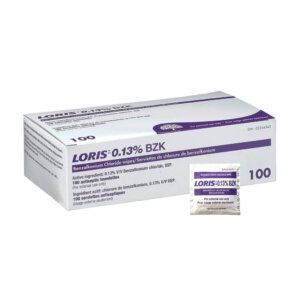
Men commonly have prostate cancer, making it one of the prevalent types of cancer. However, the chances of a successful treatment outcome are significantly higher when detected early. This is why early detection and prostate cancer screening are so important. Almost all oncology hospital in Bangalore provides cancer screening facilities for detecting all types of cancer.
What Is Prostate Screening?
Prostate screening involves testing for prostate cancer in men who have no symptoms. The two main tests for prostate cancer screening are the prostate-specific antigen test and the digital rectal exam.
A PSA test can measure a man’s blood level of Prostate-Specific Antigen. The prostate gland is responsible for producing this protein. Elevated levels of PSA in the blood may indicate the presence of prostate cancer, but other conditions, such as an enlarged prostate or an infection, can also cause them.
During Digital Rectal Exam, a healthcare consultant inserts a medically lubricated gloved finger into the rectum to examine the prostate gland. This allows the healthcare provider to check for abnormalities, such as lumps or complex areas.
Why Is Early Detection Important?
Early detection of prostate cancer is essential because it can lead to better treatment outcomes. In addition, when prostate cancer is detected early, it is more likely to be confined to the prostate gland, making it easier to treat.
Additionally, prostate cancer often grows slowly so early detection can lead to less aggressive treatments, such as watchful waiting or active surveillance. These approaches may be appropriate for men with slow-growing prostate cancer who are older or have other medical conditions that make surgery or radiation therapy riskier.
On the other hand, if prostate cancer is not detected until it has spread outside the prostate gland, it is more challenging to treat. It may require more aggressive treatments, such as surgery, radiation therapy, or chemotherapy.
Who Should Get Screened for Prostate Cancer?
The decision to get screened for prostate cancer should be made individually in consultation with a healthcare provider. The American Cancer Society recommends that men discuss the potential benefits and risks of screening with their healthcare provider starting at age 50 for most men or earlier for men at higher risk. It is important to note that prostate cancer screening is not perfect. The PSA test can produce false positive results, leading to unnecessary biopsies or other treatments. Additionally, screening tests can miss prostate cancer, mainly if it is slow-growing and not causing any symptoms.
However, despite these limitations, prostate cancer screening can still be a valuable tool for early detection and treatment.
Where Can You Get Screened for Prostate Cancer?
Prostate cancer screening is available at many healthcare facilities, including any Bangalore oncology hospital. These hospitals specialize in diagnosing and treating cancer and often have the most up-to-date technology and expertise.
Cancer Surgeries in Bangalore
Several types of cancer surgeries are performed in Bangalore, ranging from minimally invasive to complex surgeries. Therefore, you can choose the best hospital for cancer surgery in Bangalore. There are leading cancer hospitals in Bangalore with a team of experienced cancer surgeons specializing in various cancer surgeries. They have state-of-the-art facilities and use the latest technologies to perform complex cancer surgeries. The best way is to consult a qualified oncologist who can guide you in choosing the best hospital and treatment plan for your specific type and stage of cancer.
Early detection and prostate cancer screening are critical for improving treatment outcomes and reducing the risk of prostate cancer-related deaths. Men should discuss the potential benefits and risks of prostate cancer screening with their healthcare provider and decide whether to be screened.






